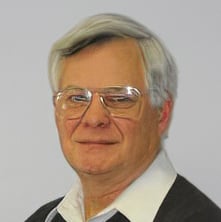This article was written by Bill Lydon, chief editor at InTech magazine.
If you think you know it all, you are living in a very small world! Having managed engineers, they tend to want to solve every problem and challenge without help from anybody as a matter of pride. The world of automation continues to become more complex with more technology. Technology makes some things easier, but the cumulative effect of more technology is increasing complexity. This is why it is important to engage with communities of knowledge where you can learn, solve problems, improve your skills, and contribute your knowledge.
The first community of knowledge is the people you work with in your company who have technical knowledge, know-how, and tribal knowledge. Tribal knowledge is “known” information that has been handed down generation to generation with no documentation, including how to handle particular situations with unique procedures and operating instructions that in many cases avoid problems and help improve manufacturing and process quality. Identifying, learning, and then capturing tribal knowledge is particularly important with the aging workforce.

Other communities of knowledge include industry association events and vendor user conferences. ISA symposiums are a great way to connect with specific communities of knowledge. ISA symposiums include the Food and Pharmaceutical Industries Division (FPID), ISA Analysis Division Symposium (AD), International Instrumentation Symposium (IIS), LDAR-Fugitive Emissions Symposium (LDAR), Power Industry Division Symposium (POWID), Process Control and Safety Symposium (PCS), and Water/Wastewater and Automatic Controls (WWAC). These events are great places to meet people, establish contacts, and share ideas with people who have similar interests and challenges. Better yet, volunteer to help with events, and you will have higher quality relationships.
The Internet provides a number of methods to share and learn, including ISA Interchange and LinkedIn groups. You can easily participate by commenting on posts and creating your own posts. It is common for people to post a question asking if anyone has a solution to an automation problem or challenge. A huge amount of knowledge and know-how you can connect with is simply waiting for you.
Successful automation engineers realize to be successful they need to establish relationships and work with others rather than being superstars who “know everything.” Early in my career, my manager stressed the concept of synergy. Synergy comes from a Greek word that means “working together” and has been defined in modern times as the creation of a whole that is greater than the simple sum of its parts. Everyone brings different perspectives and ideas that contribute to greater understanding, leading to better outcomes. New ideas, concepts, and innovation are the keys to success these days to improve productivity, quality, and profitability.
Today we can learn and share our knowledge in many ways, including discussion groups, articles, user group meetings, ISA meetings, Web meetings, and trade events to foster discussion and the exchange of ideas. Engage for your opportunity to learn and contribute to communities of knowledge.
 About the Author
About the Author
Bill Lydon is chief editor of InTech magazine. Lydon has been active in manufacturing automation for more than 25 years. He started his career as a designer of computer-based machine tool controls; in other positions, he applied programmable logic controllers and process control technology. In addition to experience at various large companies, he co-founded and was president of a venture-capital-funded industrial automation software company. Lydon believes the success factors in manufacturing are changing, making it imperative to apply automation as a strategic tool to compete.
Connect with Bill:![]()
![]()
![]()
A version of this article also was published at InTech magazine.




